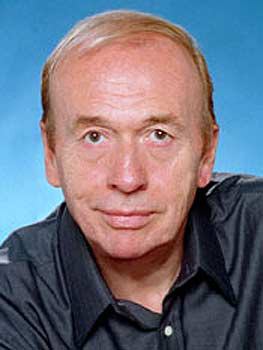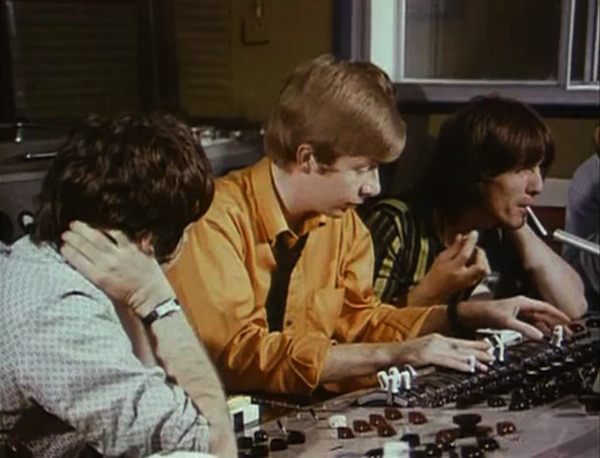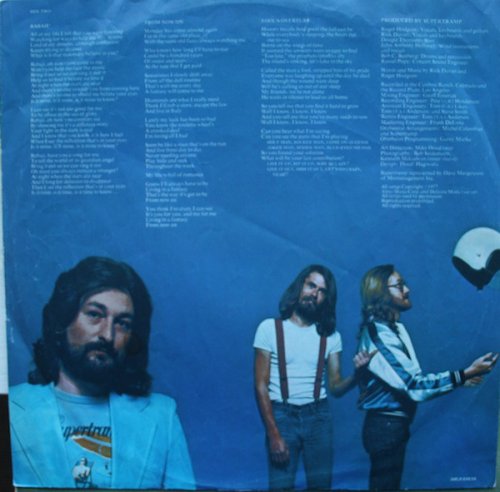Geoff Emerick
Geoffrey Emerick
English recording studio audio engineer, who is best known for his work with [a=The Beatles] albums [i]Revolver[/i], [i]Sgt. Pepper's Lonely Hearts Club Band[/i], and [i]Abbey Road[/i]. He is widely regarded as one of the best engineers in recording history (born 1946 in London).
[b] Early career at EMI [/b]
Emerick first started working at EMI at the age of 15, as an assistant to engineer [a=Norman Smith]. As an unpaid trainee, he witnessed the first-ever [l=EMI] recording session by the finalized line-up of The Beatles in 1962, during which the group recorded for the first time with new drummer [a=Ringo Starr] on what would eventually become their first hit single "Love Me Do." As assistant engineer, he worked on numerous early recordings by The Beatles, and also helped record other artists for the label, including [a=Judy Garland]. He assisted at the [l=EMI] artist test of [a=Hollies].
After working his way up to the position, Emerick engineered the 1966 number one UK [a=Manfred Mann] hit "Pretty Flamingo." Emerick took over The Beatles engineering duties from Smith soon after at the request of producer [a=George Martin]. The first album Emerick worked on with the Beatles as their main recording engineer was [i]Revolver[/i], and "Tomorrow Never Knows" was the first track he worked on. It was Emerick's innovation to record [a=John Lennon]'s vocal through a Leslie speaker on that song, to get the ethereal sound Lennon wanted. He received Grammy Awards for the engineering of [i]Sgt. Pepper's Lonely Hearts Club Band[/i] and [i]Abbey Road[/i]. He abandoned work on The Beatles on 16 July 1968, fed up with the tensions and arguments that hampered the sessions.
Despite his departure from the "White Album" sessions, Emerick remained on good terms with the Beatles, particularly [a=Paul McCartney], who invited Emerick to quit EMI and come work for their company, [l=Apple Corps Ltd.], in 1969. In addition to engineering duties, Emerick would oversee the construction of [l=Apple Studios].
[b] After the Beatles [/b]
His post-Beatles career included work with [a=Paul McCartney] (including [i]Band On The Run[/i], which netted Emerick another Grammy, [i]London Town[/i], and [i]Flaming Pie[/i]), [a=Elvis Costello] (for whom he produced [i]Imperial Bedroom[/i] and [i]All This Useless Beauty[/i]), [a=Badfinger], [a=Art Garfunkel], [a=America (2)], [a=Gino Vannelli], [a=Supertramp], [a=Cheap Trick], [a=Nazareth], [a=Chris Bell], [a=Split Enz], [a=Big Country], [a=Gentle Giant], [a=Mahavishnu Orchestra], [a=Ultravox], [a=Matthew Fisher]'s first solo album [i]Journey's End[/i], and [a=Jeff Beck], as well as [a=Nellie McKay]'s 2004 debut CD [i]Get Away from Me[/i]. He was the sound engineer on [a=Robin Trower]'s album [i]Bridge of Sighs[/i], and is credited by both Trower and producer Matthew Fisher for that album's acclaimed sound.
In 2003, he received his fourth Grammy, this time for lifetime Technical Achievement.
In 2006, Emerick released his memoir, Here, There, and Everywhere: My Life Recording the Music of The Beatles (Gotham Books, ISBN 1-59240-179-1), co-authored by veteran music journalist [a=Howard Massey].
On 3 April 2007 it was announced that Emerick would be in charge of a re-recording of Sgt. Pepper's Lonely Hearts Club Band by contemporary artists, including [a=The Oasis], [a=Killers], and [a=Razorlight]. Emerick used the original equipment to record the new versions of the songs, and the results were broadcast on BBC Radio 2 on 2 June, marking the album's 40th anniversary.
http://en.wikipedia.org/wiki/Geoff_Emerick
http://www.the-beatles-history.com/geoff-emerick.html
http://calitreview.com/129


